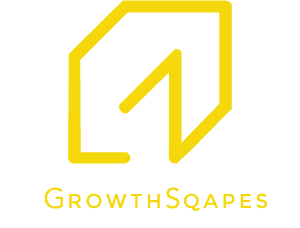Time and Results Management
Time management is an essential skill for middle-level managers. Time management is an active process of planning how one can judiciously spend one’s time to maximize effectiveness and efficiency. Effective time management leads to faster completion of tasks which in turn results in freeing up one’s available time for other activities. Within an organization, as the manager’s time is engaged strategically to maximize revenue, effective time management by the managers leads to a reduction of wasted time and better prioritization of tasks thereby leading to better business results.
GrowthSqapes’ programme on Time and Results Management helps the manager to discover tools and methods to increase productivity and efficiency in his area of own work or career and thereby achieve the intended results.
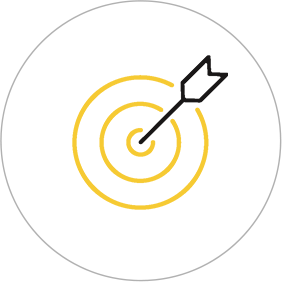
Objectives
- Ensure the setting of correct organisational priorities.
- Improve efficiency and productivity of managers.
- Facilitate faster and better decision making.
- Reduce stress and anxiety among managers.
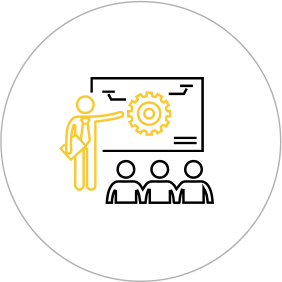
Who Should Attend?
- Project Managers.
- Functional or Business Heads.
- First Time Managers.
- Individual Contributors.
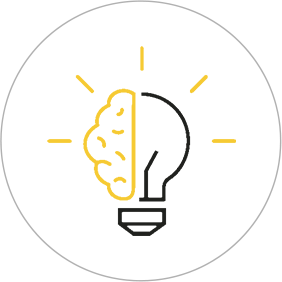
Key Learning for Participants
- Clarify and prioritise goals and objectives by creating more planning time.
- Learn appropriate strategies for dealing with “time stealers”.
- Learn practical techniques for organizing work.
- Understand ways to reduce stress and strike a positive work-life balance.
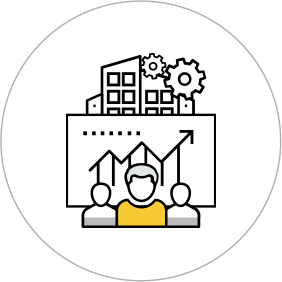
Business Impact for Organization
- Higher organizational effectiveness by way of high-quality delivery of business results.
- Creation of an organizational climate which is highly productive and decisive.
- Better skill, competence and resource optimization in the organization.
- Creation of a happy workplace with happy and work-life balanced employees.
Design Elements

Individual & Group diagnostics

Coaching sessions
Delivery Elements

Facilitation /presentation

Activity/simulations

Role play/real play

Audio Visuals
Achievement Orientation Lab
Achievement Motivation (David McClelland) refers to how any individual understands and responds to task-based situations. Of the three motivations of Power, Affiliation and Achievement – Achievement Motivation directly refers to someone’s motive to excel in any given situation. Since most organizations are performance-driven at the level of the unitary employee, achievement motivation can be seen as an important intervention to convert people with “Average” Orientation to “Excellence” Orientation.
GrowthSqapes’ programme on Achievement Motivation helps the manager to discover tools and methods to learn to detect and feed their motivation, become ready to adapt themselves and to explore and conquer new horizons.

Objectives
- Develop an organization-wide Achievement Mindset.
- Build up mechanisms to work around obstacles and ensure achievement.
- Cultivate a ‘never-give-up’ attitude among employees and enable them to become go-getters.
- Create a pool of inspirational leaders who motivate others to achieve.

Who Should Attend?
- Middle management employees who strive for excellence.
- Project Managers.
- Functional Heads.
- Sales Professionals.

Key Learning for Participants
- Examine the extent to which one exhibits the characteristics of a high achievement-oriented person on actual performance exercise.
- Cultivate behaviours to work around obstacles and solve problems.
- Become inspirational beings who motivate others to achieve.

Business Impact for the Organization
- Achievement-oriented business-related decision making.
- Increased change-readiness for the entire organization.
- Shifting the mindset of the organization towards total excellence and productivity.
- Greater clarity of roles, responsibilities & enhanced drive to fulfil organizational roles and responsibilities.
Design Element

Individual / Group assessments

Profiling tools

Individual Development Plans

Training workshops

Coaching and Feedback sessions
Delivery Elements

Facilitation /presentation

Activity/simulations

Case study Discussion

Audio Visuals

Technology blending
Behavioural Event Interviewing (BEI)
As against traditional interviews, BEI is a dynamic form of interviewing in which the interviewee is guided to tell about the outcomes in recent business situations whilst the interviewer skilfully probes and clarifies exactly how those outcomes were achieved. Because the interviewee is recalling their actual behaviours, accurate recall is enhanced and even the most nervous interviewees are given the best chance to accurately portray evidence of their strengths and weaknesses. Behavioural Event Interviewing (BEI) has been shown to have approximately 50% more predictive validity than traditional interviewing.
The BEI programme of GrowthSqapes places emphasis on the development of event-based interviewing skills of the managers in the interest of structured interviewing practice and more accuracy in hiring the right talent.

Objectives
- Develop a fair and consistent organization-wide interviewing process for selecting employees.
- Demonstrate the scientific basis of job analysis and competency mapping process.
- Use several BEI techniques in selecting the right talent.
- Develop systems and process to track the effectiveness of the selection process.

Who Should Attend?
- Hiring Managers.
- Project Team Managers/Recruiters.
- HR Professionals.
- Anyone involved in the recruiting or hiring process within their organization.

Key Learning for Participants
- Develop the ability to conduct competency-based interviewing.
- Prepare for using conversational models for effective interviewing.
- Identify the right response in a Behavioural Event Interviewing via application of models.
- Capture positive and negative behavioural indicators to identify the right talent.

Business Impact for Organization
- Higher organizational effectiveness by way of accurate hiring decisions.
- Better skill and competence of hiring managers.
- Leads to cost-saving via a reduction in expensive employee turnover.
- The positive impression of the company on the basis of fairness.
Design Elements

Individual & Group diagnostics

Individual skill Assessments

Training workshop

Coaching sessions

Certification
Delivery Elements

Facilitation /presentation

Activity/simulations

Role play/real play

Case study Discussion

Audio Visuals
TeamManship
Effective teamwork in an organization increases the organization’s overall effectiveness by delivering high-quality business results. Effectiveness of a team lies in the spirit in which tasks are shared by team members, collective beliefs are established, commonly adhered values are practised by them as behaviours and how they agree upon the common goals to chase. Building an effective team is similar to programming the members to understand and appreciate that high-performance teamwork is an outcome of each of their personal responsibility, a sense of oneness with collaborative energy, synergistic actions, which lead to results.
GrowthSqapes’s Teamwork training Program with the name of TeamManship is a high-impact experiential learning intervention that helps organizations in building high-fidelity teams that deliver high-quality results consistently.

Objectives
- Convert a cross-functional group into a high-performing team
- Instil the spirit of collaboration and synergy in teams
- Instil collective problem-solving and decision making skills
- Building trust and learning constructive conflict resolutions.

Who Should Attend
- Project Team members
- Internal Work Groups
- Focus Team members
- Cross-functional team members

Key Learning for Participants
- Understand, appreciate and work upon their individual behaviours as experienced by others
- Understand their communication style and its impact on other
- Enhance their appreciation and inclusion of other’s approach, decision and work-methods
- Perform, manage and achieve collectively and collaboratively.

Business Impact for Organization
- Higher organizational effectiveness by way of high-quality delivery of business results
- Creation of an organizational climate that is positive, engaged and highly productive
- Promotion of a sense of belonging to the organisation
- Better skill, competence and resource optimization in the organization.
Design Elements

Individual & Group diagnostics

Individual Skill Assessments

Webinar

Coaching Sessions

Certification
Delivery Elements

Facilitation /presentation

Activity/simulations

Role play/real play

Case study Discussion

Audio Visuals
